PhotoGallery
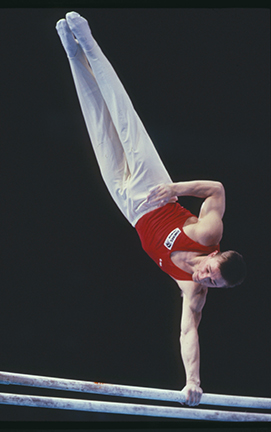
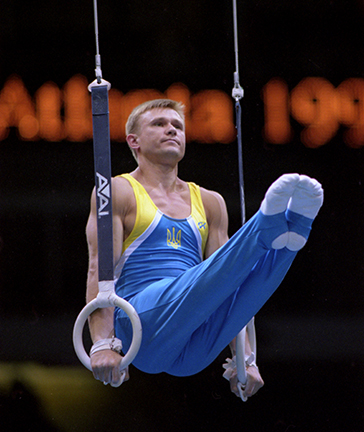
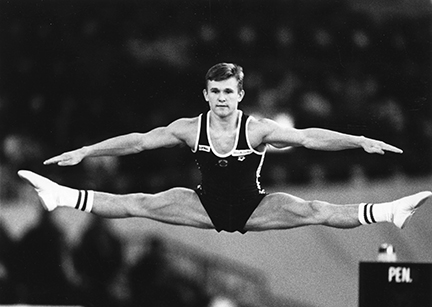
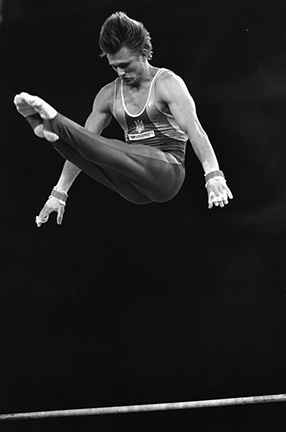
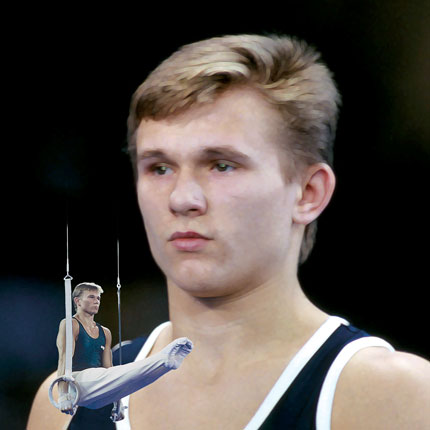
The fall of the Berlin wall on Nov. 9,1989, signified the end of the Soviet Union. Ironically, it followed the rise of Igor Korobchinsky, who had won the USSR Cup in April, the European Championships in May, the USSR Nationals in September, and the World Championships in October.
1989 was a pivotal year, both for the world and a 20-year-old gymnast from Antratsyt, Ukraine. The fall of the Berlin wall on Nov. 9 signified the end of the Soviet Union and the communism that ruled the Eastern bloc. Ironically, it followed the rise of Igor Korobchinsky, who had won the USSR Cup in April, the European Championships in May, the USSR Nationals in September and, finally, the World Championships in October. Had the Soviet Union not dissolved into separate republics, the 1989 world champion might have enjoyed a more prolific career.
Had the Soviet Union not dissolved into separate republics, the 1989 World Champion might have enjoyed a more prolific career
Born Aug. 16, 1969, to Alexei, a miner, and Lyudmila, a water purification inspector, Korobchinsky says his optimistic nature came from his parents. His gymnastics basics were honed over three years under Alexei Stepanenko, who began coaching Igor when he was 7. Coach Anatoly Shemyakin took over in 1980. “He’s industrious and ambitious, which are important qualities for an athlete,” Shemyakin says.
Korobchinsky continued to represent the Soviet Union at the 1991 Indianapolis World Championships, where he won golds with the team and in floor exercise, the one apparatus he had won in 1989. The former Soviet gymnasts competed under the title of the Commonwealth of Independent States at both the 1992 World Championships and Olympics. Beginning in 1993, however, Korobchinsky wore a Ukrainian flag on his jersey, winning three more medals in world and Olympic competition: silver on parallel bars (1993 Worlds) and bronze in the team competition (1994 Worlds and 1996 Olympics).
After retiring from competition, Korobchinsky remained loyal to the Ukrainian efforts. He was head coach of the Ukrainian men’s team from 1997-2012, and President of the Ukrainian Gymnastics Federation from 2000-14. As funding for the gymnastics program slowly disappeared, he moved his family to the United States. He and his wife, Inna (nee Volik), a former gymnast, have two daughters, Vlada and Nicole.



